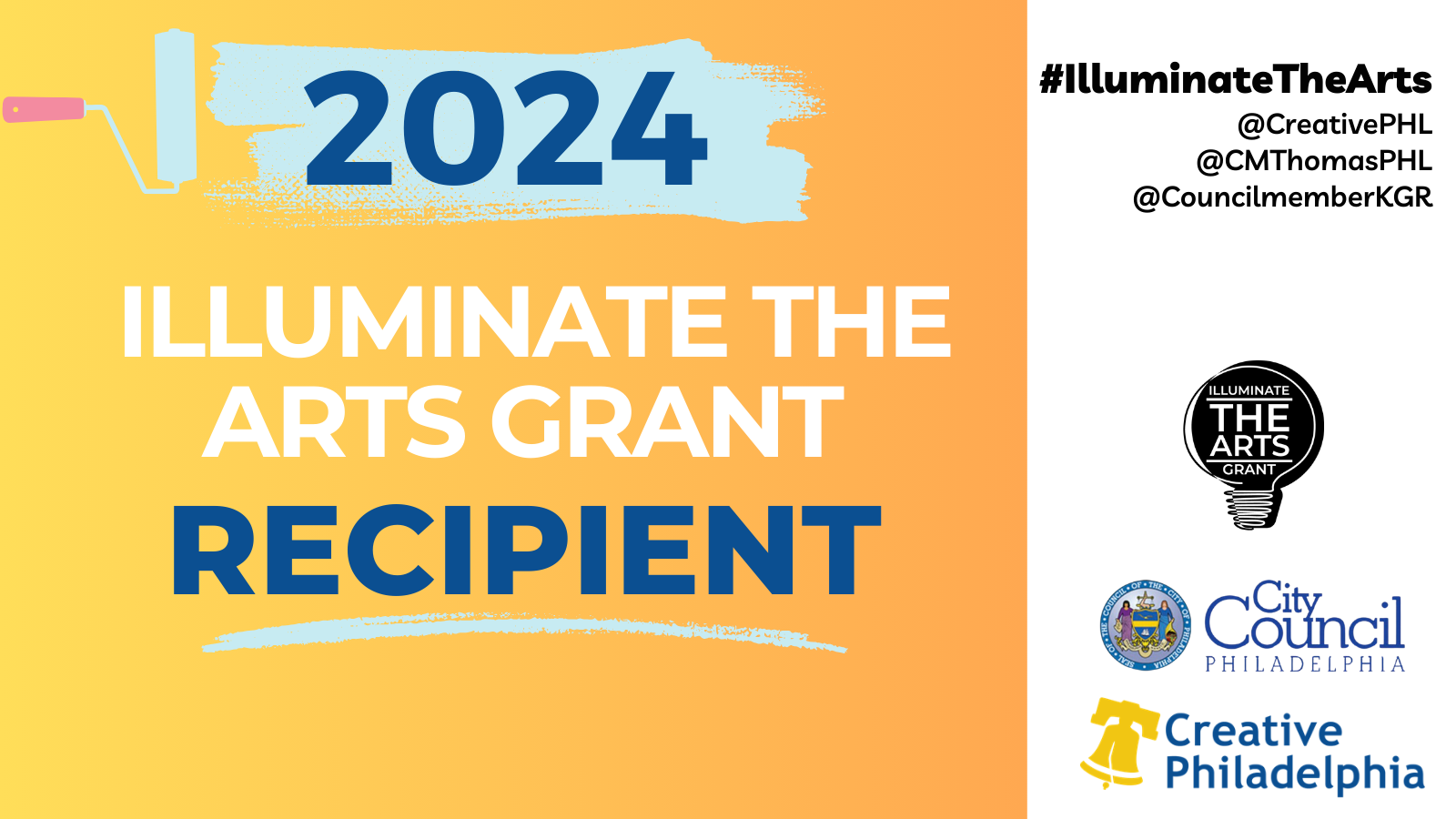The Last Parade by Stephanie Satie
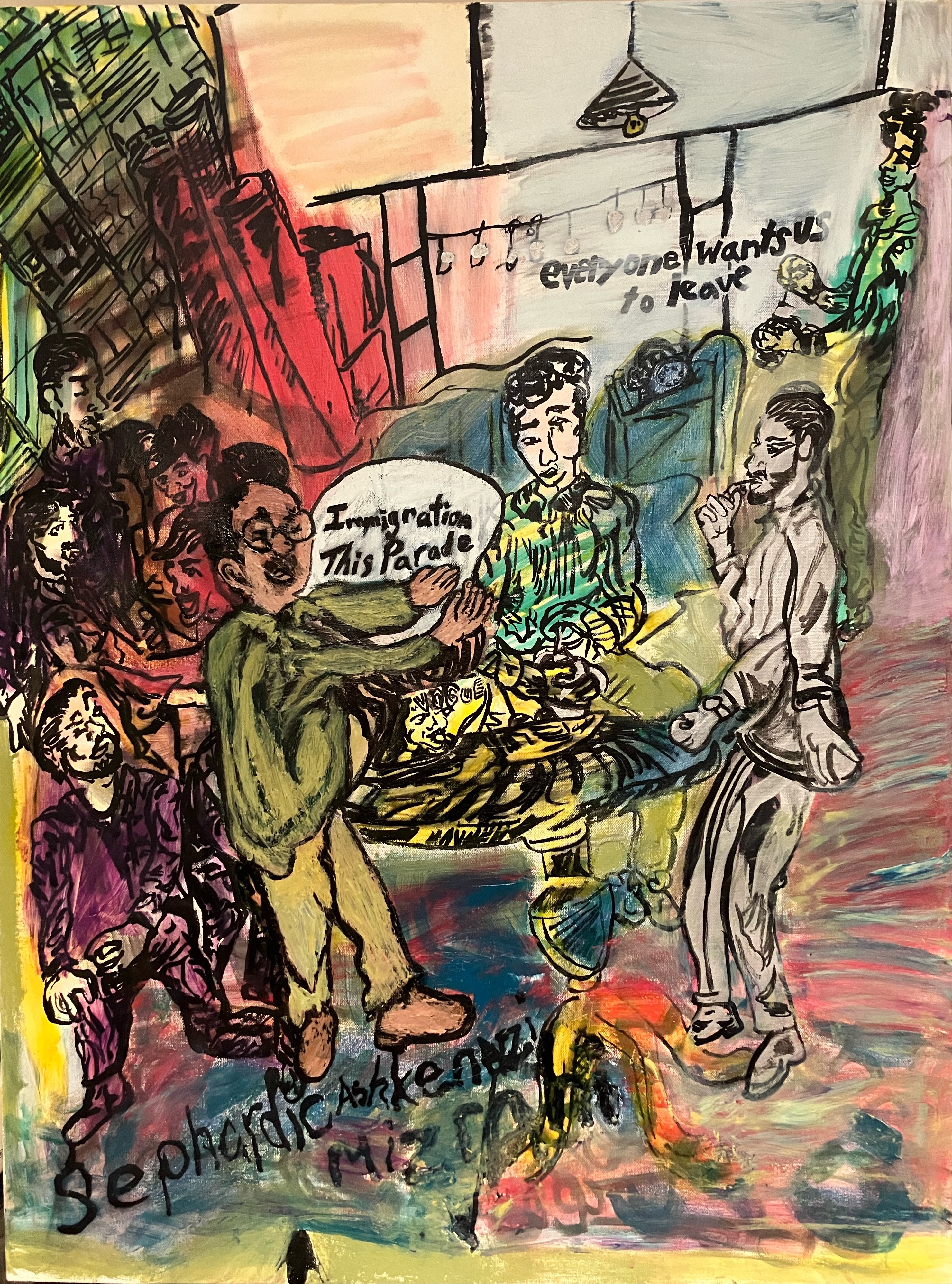
Research into the history of the Jewish Diaspora
Sephardic, Ashkenazi, and Mizrahi Jews describes a global migration of people from around the world who identify with the worship of Judaism
WHYSEEART
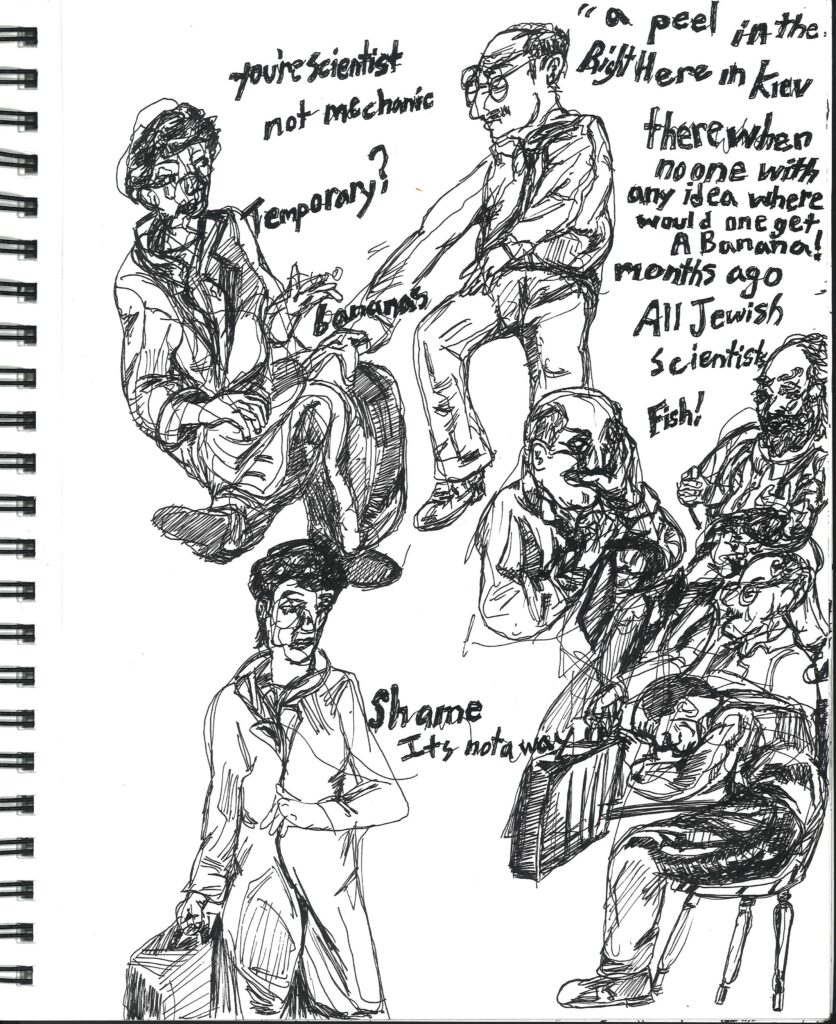
The Drake Louis Bluver Theater right off South Broad Street gives Off-Broadway a new name, thanks to Theater Interact, and we look forward to the the artistic teams inclusive dialogue with its speaker series. This productions which takes a current event, and elaborates the history in light of this war in Ukraine. It directs our thoughts across many indirect views for caring for the people of Ukraine under the Russian oppressive forces invading the frontline. It was an induendé by the playwright because of the backstory which allows the history to enter. It was on location, and character, with the power of persuasion and systemic grief. From there, exploring the nationalist view for Ukraine through the eyes of Judaic populations told a long history of displacement by Russian oppression. Theater InterAct sets up an audience to see differences amongst displaced, which makes them human subject to this grief.
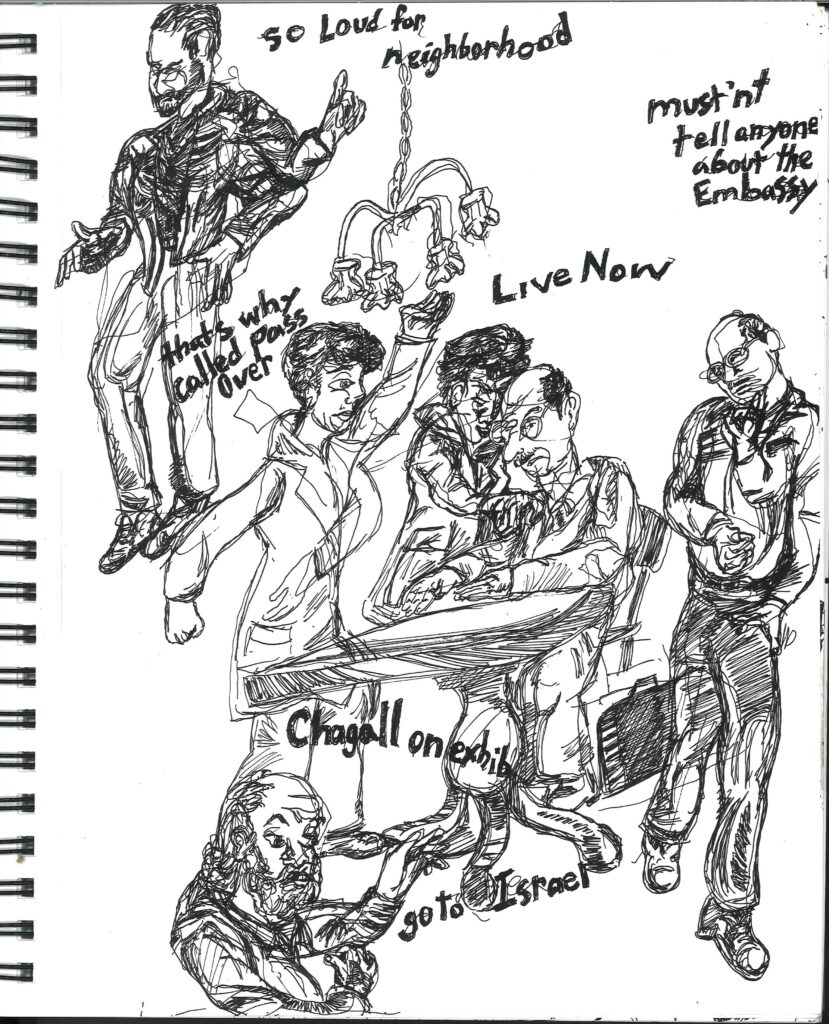
The Last Parade presented another side to refugees and under represented’ ecosystem for global issues. The introduction of a narrator, and a psychological point of view on Russia is jaded by the livelihood of a smuggling and dealing, played by Adam Howard. Borya played by Howard along with his sister Anya in the play, played by Ava Wintzweig takes a look at the struggles of family and generational divides. The youth of these two siblings grew farther apart. Being divided by very different stakes in the place, of belonging, and to adapt to society ment differently in their point of view of fitting in. The play of course, this exposes its complexity in the fact, how Russia had invaded Ukraine in recent history, and in the past decimating whole Jewish populations in “pograms,” public humiliations and violent revolts against villages’ jewish populations.
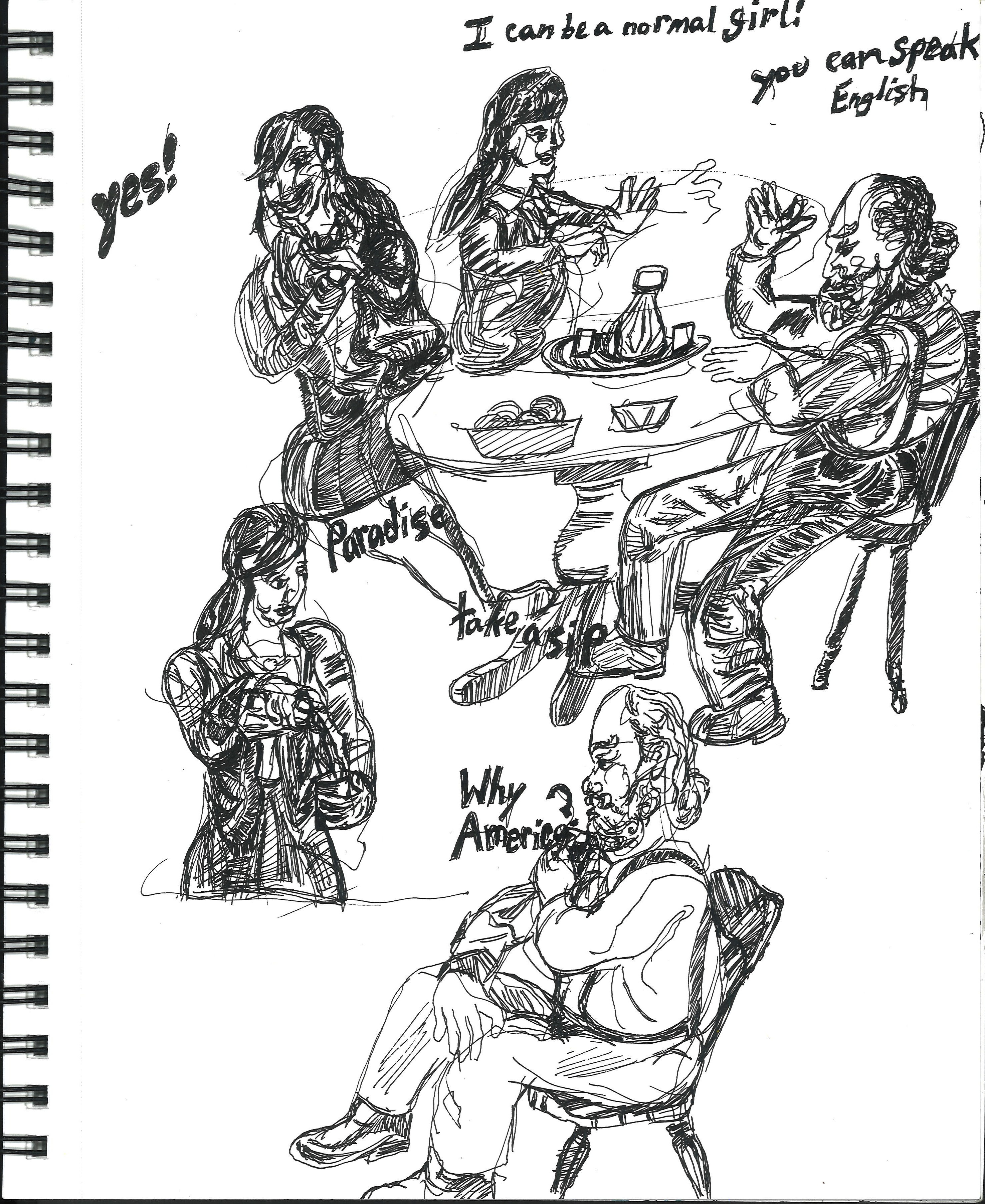
All of the visual play given by Tim Moyer, as Yasha, the older generational war veteran has all the humor before the clinically depressed mid-life crisis over comes Leon, played by Anthony Lawton. It shed light on the emotional damage with being in a state of depression. The strength of the mother in the play redirects our attention to rationalize blame, and stop the intention for immigrating to the U.S. for the Jewish family. Leah Walton plays this figure of strength and fervor for the tradition inherited in the customs she brings to surface, whether they immigrate to Israel or the U.S. The disposition between the siblings is comparable to the parents position on the matter of immigration. That is, Leon sabotages their chances for them to be granted resident immigrants in the U.S. and the emotional toll on this player iterates the meaning of “The Last Parade,” but not quite the leverage that I have shown above. The meaning of the character, and the meaning of the play is a split scene given the therapeutic sensations of being clinically depressed, and misdiagnosed. By revealing that point of degradation of inhumanity.
The complementary relationship of individuals in the play, not so easy to indicate, but where one’s motives shows deep roots in the land they come from, or another position closer to modern values and to the U.S. we unveil indecision which gives us conflict. The position of conflict in the play resonates with the fractured view point within this family. The movement of a group of people from one place to another due to the danger to their health or safety means giving audiences the sensation that this war may possibly be more about ethnic discrepancies than at first glance. That is, that there is a huge population of jewish people coincidentally in Ukraine. Likely, as in prior history when villages under Communists, Bolsheviks, and Russian armies took a position on discriminating the jewish people in order to take control of the land.
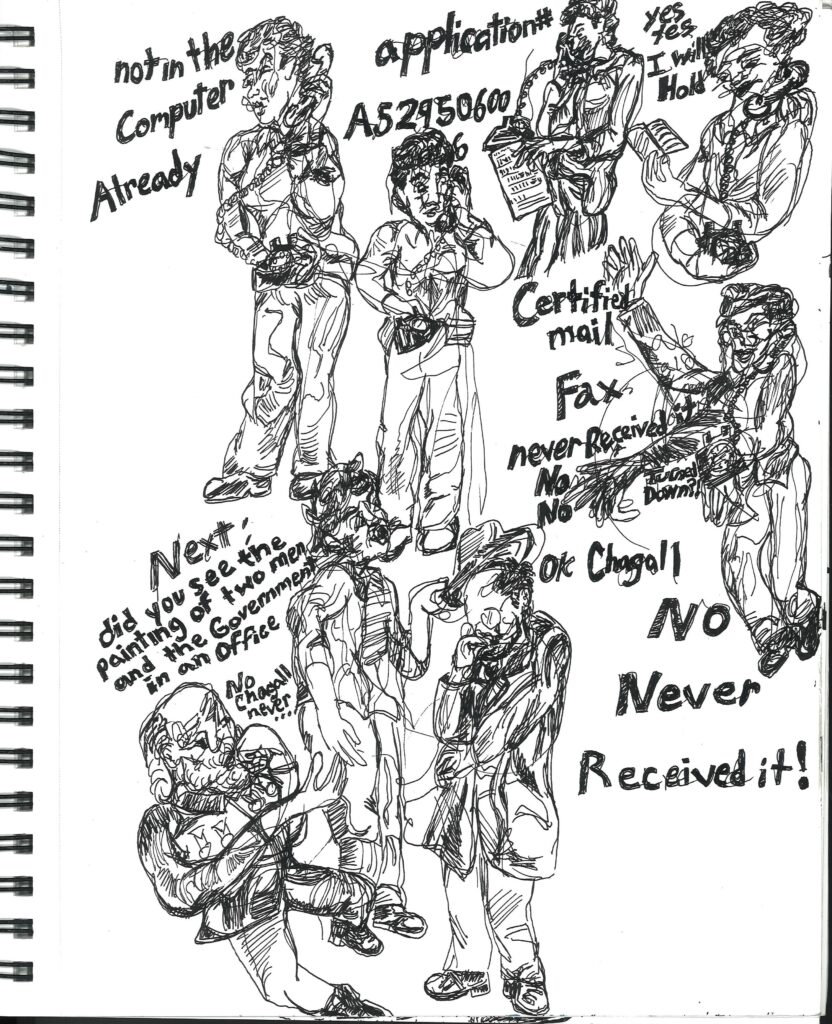
- Stephanie Satie (playwright, she/her) in an impressive career of works that show the importance of humanities for the society of refugees and immigrants. Writing the solo plays, “Refugees,” published by Samuel French and other works show the values for people globally in her plays and books.
- Seth Rozin (producing Artistic Director, he/him) co-founder of InterAct Theater in 1988 and his leadership in other works under similar criticism, such as “How to Use a Knife”, 2017 and “Human Rites,” 2019.
- Adam Howard (Borya, 2019 The Last Parade, Wilbur, 2018 Charlotte’s Web at Arden Theatre Children’s theater, HIM, Camp Siegfried, 2024 Theatre Exile, The Taming!, Shakespeare in Clark Park 2022)
- Anthony Lawton (Leon, 2023 The Last Parade, Lantern Theater 2023 Travesties)
